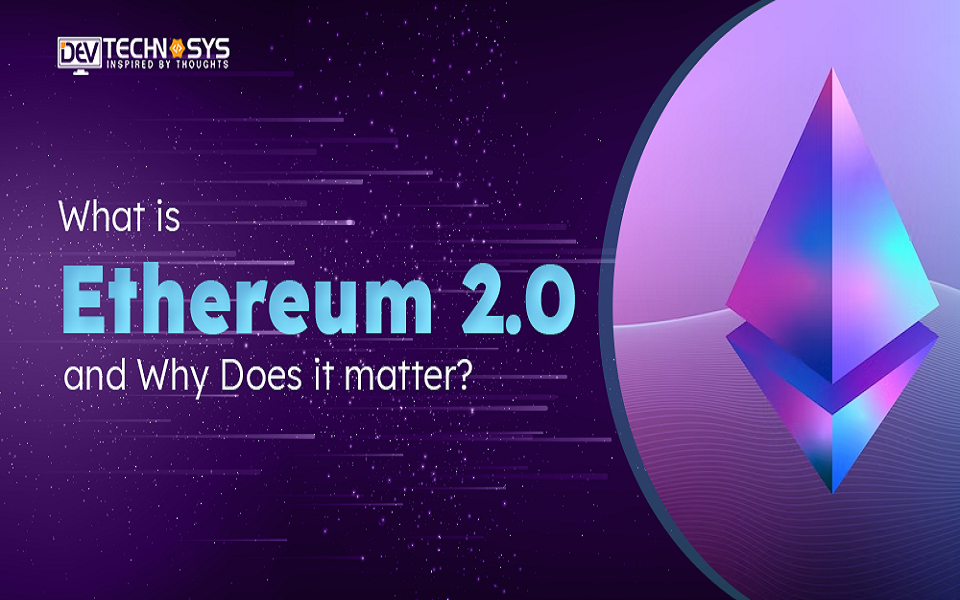What Is A Cryptocurrency Exchange?
A cryptocurrency exchange is a digital platform where users can buy, sell, and trade various cryptocurrencies, such as Bitcoin, Ethereum, and others. These exchanges function similarly to traditional financial markets, offering a marketplace where traders and investors can exchange digital assets. Cryptocurrency exchanges come in two main types: centralized exchanges (CEX), which are managed by a central authority and offer high liquidity and user-friendly interfaces, and decentralized exchanges (DEX), which operate on blockchain technology and allow peer-to-peer trading without intermediaries. Each type has its advantages and drawbacks, but both play a crucial role in the growing world of digital finance by providing access to a wide range of cryptocurrency trading options.
What Is Cryptocurrency Exchange Development?
Cryptocurrency exchange development refers to the process of creating and launching a platform where users can trade digital currencies like Bitcoin, Ethereum, and others. This involves designing and building the software and infrastructure needed to facilitate secure, efficient, and scalable trading operations. The development process includes several key components: user interface design, integration with blockchain networks, security measures to protect against hacking and fraud, and compliance with regulatory requirements. Developers must also implement features like order matching engines, wallets for storing assets, and trading tools. Successful cryptocurrency exchange development aims to provide a seamless trading experience while ensuring high levels of security and reliability.
How To Develop A Cryptocurrency Exchange?
Planning and Architecture Design
Start by conducting thorough research and planning. Define the core functionalities of your exchange, such as user registration, order matching, and wallet management. Develop a detailed technical architecture that encompasses the front-end, back-end, databases, and security measures.
Technology Selection
Choose the right technology stack for your exchange. This might include programming languages like Python or JavaScript, frameworks such as Node.js or Laravel, and databases like PostgreSQL or MongoDB. Consider integrating blockchain frameworks like Ethereum or Hyperledger for blockchain functionalities.
User Interface Development
Design and build a user-friendly interface for your exchange. Utilize front-end technologies like HTML, CSS, and JavaScript, along with frameworks like React or Angular, to create an intuitive and responsive platform for users to trade and manage their accounts.
Backend Development
Develop the back-end infrastructure of your exchange. This includes user authentication, the order matching engine, trading APIs, and blockchain network integration. Implement robust server-side logic using languages like Python or Node.js, and ensure strong security measures are in place.
Wallet Integration
Create secure wallets for storing and managing user cryptocurrencies. Features should include generating wallet addresses, tracking balances, and handling deposits and withdrawals. Use blockchain libraries or APIs to interact with blockchain networks.
Security Implementation
Prioritize security to protect user funds and data. Implement encryption, and two-factor authentication (2FA), and follow secure coding practices to address vulnerabilities and ensure the safety of the platform.
Testing and Quality Assurance
Conduct rigorous testing to ensure your exchange is reliable and scalable. Perform functional, security, and performance tests using tools like Jest, Selenium, or JMeter. Automated testing and monitoring are crucial for maintaining platform integrity.
Deployment and Ongoing Maintenance
Deploy your exchange on a secure and scalable hosting environment. Continuously monitor and maintain the platform by applying updates, performing regular security audits, and addressing technical issues as they arise.
Compliance with Regulations
Adhere to legal and regulatory requirements such as KYC (Know Your Customer) and AML (Anti-Money Laundering) policies. Implement user verification processes and integrate reporting mechanisms to ensure compliance with regulatory standards.
Promotion
Develop and execute a robust marketing strategy to raise awareness and attract users to your exchange. Utilize social media, content marketing, influencer partnerships, and paid advertising to effectively reach and engage your target audience.
Customer Support
Provide exceptional customer support to build trust and foster user loyalty. Address queries promptly, offer 24/7 support, and continually enhance your platform based on user feedback.
Creating a cryptocurrency exchange requires meticulous planning, in-depth research, and effective execution. By following these steps, you’ll be well-equipped to build a secure, compliant, and innovative platform that stands out in the digital asset trading space.
How Does A Cryptocurrency Exchange Work?
A cryptocurrency exchange works as an online marketplace where users can trade cryptocurrencies. Here’s a simplified explanation of how it typically functions:
USER REGISTRATION:
Users create an account on the exchange by providing their personal information and completing any required verification processes.
DEPOSIT FUNDS:
Users deposit funds into their exchange account, either in the form of cryptocurrencies or traditional fiat currencies. The exchange provides wallet addresses for different cryptocurrencies to facilitate deposits.
PLACING ORDERS:
Users can place various types of orders, including market orders (buying or selling at the current market price) and limit orders (buying or selling at a specified price). They can set the amount and price at which they wish to trade a specific cryptocurrency.
ORDER MATCHING:
The exchange facilitates the matching of buy and sell orders among its user base. If a buyer’s bid matches a seller’s ask price, a trade occurs, and the exchange executes the transaction.
EXECUTION AND SETTLEMENT:
Once a trade is matched, the exchange facilitates the transfer of the cryptocurrencies between the buyer and the seller. It updates the account balances accordingly.
WITHDRAWAL:
Users can withdraw their funds from the exchange, either by transferring cryptocurrencies to their personal wallets or by converting them into fiat currency and sending them to their bank accounts.
FEES:
The exchange charges fees for executing trades, withdrawals, and other services. The fees can differ based on the platform utilized and the nature of the transaction being conducted.
It’s important to note that different exchanges may have additional features, such as margin trading, futures trading, and advanced order types. The overall functionality and user interface may vary, but the underlying principles of order matching and facilitating transactions remain consistent across most cryptocurrency exchanges.
Who Will Create Crypto Exchange in a Short Period?
There are several firms that specialize in cryptocurrency exchange development. These companies have the expertise and resources to start your own cryptocurrency exchange efficiently. They offer end-to-end solutions, from conceptualization to deployment, ensuring a seamless setup process. Leading companies like HashCash Consultants, Openware, and ChainUP are known for their quick and reliable services.
Factors to Consider While Choosing Cryptocurrency Exchange
- Experience and Expertise: Ensure the team has a proven track record in cryptocurrency exchange development.
- Security Measures: Verify that they implement robust security protocols to protect user data and funds.
- Regulatory Compliance: Ensure they have experience with regulatory requirements in your target market.
- Customization and Scalability: The platform should be customizable to your needs and scalable to handle future growth.
Who Can Help Me To Create a Crypto Exchange?
Developing a cryptocurrency exchange involves a multifaceted approach, blending expertise in blockchain technology, security measures, legal regulations, and user experience design. To streamline the process and ensure a successful launch, consider collaborating with the following experts and organization.
Whether you choose a specialized development company, a white-label solution provider, a blockchain development firm, or freelance developers, each option offers unique advantages. Leveraging their expertise will help you create a cryptocurrency exchange that is secure, compliant, and user-friendly. These professionals can support you throughout the entire process, from the initial launch to ensuring thorough development and successful implementation.
Do I Need A License To Operate A Cryptocurrency Exchange?
The requirements for operating a cryptocurrency exchange can differ significantly depending on the jurisdiction. In many regions, obtaining a license is a legal necessity to run a cryptocurrency exchange. These licenses ensure adherence to regulations and help safeguard users from fraud and money laundering. It's crucial to thoroughly research the legal and regulatory framework in the area where you intend to set up your exchange. Consulting with legal experts who specialize in cryptocurrency regulations is highly advisable to navigate this complex landscape. Additionally, when developing your cryptocurrency exchange, ensure your platform meets stringent security protocols, provides strong user authentication, and incorporates measures to defend against hacking and other cyber threats.
Best crypto exchange developers' contact details?
When creating a cryptocurrency exchange, consider partnering with leading developers such as HashCash Consultants, Openware, ChainUP, ConsenSys, Altoros, B2Broker, and AlphaPoint. These firms provide extensive services for cryptocurrency exchange development, ensuring that your platform is both robust and secure. Reach out to them to kickstart your cryptocurrency trading platform.
What Types Of Cryptocurrencies Can Be Traded On A Cryptocurrency Exchange?
On a cryptocurrency exchange, you typically have access to a broad range of cryptocurrencies. The specific selection varies by exchange and its supported listings. Established exchanges usually offer major cryptocurrencies like Bitcoin (BTC), Ethereum (ETH), Ripple (XRP), Litecoin (LTC), and Bitcoin Cash (BCH), along with other popular and emerging tokens.
When creating your own cryptocurrency exchange, you have the flexibility to choose which cryptocurrencies to support. You can tailor your selection based on market demand, user preferences, and regulatory requirements. It’s crucial to perform thorough research and due diligence on any cryptocurrencies you plan to list, taking into account factors such as their technology, community support, liquidity, and overall credibility.
Where to Set Up My Cryptocurrency Exchange?
Setting up a cryptocurrency exchange is an exciting venture that requires careful planning and consideration of several factors. The location where you choose to create a cryptocurrency exchange can significantly impact its success and compliance with regulatory standards.
Choosing the right location to create your cryptocurrency exchange in 2 days involves considering regulatory environments, economic stability, access to technology and talent, market demand, tax implications, and legal and financial services. By carefully evaluating these factors, you can build your cryptocurrency exchange in a location that supports growth and compliance, ensuring a successful and sustainable venture. Whether you aim to launch your cryptocurrency exchange in a blockchain-friendly jurisdiction or a tech hub, the right location will significantly impact your exchange’s success and user trust.
Trustable Company to Create A Cryptocurrency Exchange
For those looking to create a cryptocurrency exchange, partnering with top developers like HashCash Consultants, Openware, ChainUP, ConsenSys, Altoros, B2Broker, and AlphaPoint is crucial. These companies offer the expertise needed for a successful and secure cryptocurrency exchange development, ensuring your platform is built to handle the demands of modern crypto trading.
How Can I Integrate Different Cryptocurrencies Into My Exchange Platform?
Integrating different cryptocurrencies into your exchange platform involves several steps. Here’s a general guide on how to integrate cryptocurrencies:
RESEARCH AND SELECT CRYPTOCURRENCIES:
Identify the cryptocurrencies you want to integrate into your exchange platform. Consider factors such as market demand, liquidity, and the technological feasibility of integrating each cryptocurrency.
SET UP WALLETS:
Create wallets for each cryptocurrency you plan to support on your exchange. Each wallet should have a unique address to receive and store the respective cryptocurrency.
DEVELOP OR INTEGRATE APIS:
Cryptocurrencies typically have their APIs (Application Programming Interfaces) that allow interaction with their blockchain networks. Develop or integrate APIs to connect your exchange platform with the blockchain networks of the cryptocurrencies you want to support. These APIs enable transactions, balance tracking, and other interactions.
IMPLEMENT TRANSACTION PROCESSING:
Set up mechanisms to process transactions between users. This involves executing buy/sell orders, updating account balances, and managing withdrawal requests.
SECURITY MEASURES:
Implement robust security measures to protect user funds and transaction data. Utilize encryption protocols, multi-signature wallets, and other security practices to ensure the integrity and confidentiality of transactions.
TEST AND DEPLOY:
Conduct thorough testing to ensure the smooth functioning of cryptocurrency integrations. Test various scenarios, including deposits, withdrawals, order execution, and account balances. Once testing is complete, deploy the integrations to the live environment.
MONITOR AND MAINTAIN:
Continuously monitor the integrations for performance, security, and updates. Stay updated with the latest developments and updates related to the integrated cryptocurrencies to ensure compatibility and compliance with any required upgrades or protocol changes.
STAY COMPLIANT:
Be aware of and adhere to any legal and regulatory requirements associated with supporting specific cryptocurrencies. Ensure compliance with KYC/AML regulations and any other applicable regulations in your jurisdiction.
Integrating different cryptocurrencies requires technical expertise and a thorough understanding of the underlying blockchain networks. Engaging experienced developers or development firms specializing in cryptocurrency exchange development can simplify the process and ensure a smooth integration of multiple cryptocurrencies into your exchange platform.
How to Create a Cryptocurrency Exchange Online?
Creating a cryptocurrency exchange online involves several crucial steps to ensure the platform is secure, functional, and compliant with regulatory standards. Here’s a detailed guide on how to create cryptocurrency exchange online
1. Define Your Goals and Requirements
Begin by clearly defining your objectives. Decide the type of exchange you want to build: centralized, decentralized, or hybrid. Centralized exchanges (CEX) offer ease of use and high liquidity but require a central authority to manage. Decentralized exchanges (DEX) operate without a central authority, offering greater privacy and control but often with lower liquidity. Hybrid exchanges combine elements of both.
2. Legal and Regulatory Compliance
Ensure that you understand the legal requirements in your jurisdiction. Different countries have varying regulations concerning cryptocurrency exchanges. You may need licenses or approvals, and it's crucial to comply with anti-money laundering (AML) and know-your-customer (KYC) regulations. Consulting with a legal expert specializing in cryptocurrency can save you from future complications.
3. Develop a Business Plan
Create a comprehensive business plan that outlines your target market, revenue model, and marketing strategies. Decide on the fees you will charge, the types of cryptocurrencies to be supported, and any additional features like margin trading or staking.
4. Choose a Technology Stack
Select the technology stack that will support your exchange. This includes choosing between building your platform from scratch or using a white-label solution. White-label solutions are pre-built platforms that you can customize, which can speed up the development process and reduce costs.
5. Security Measures
Security is paramount in cryptocurrency exchanges. Implement robust security features, including SSL certificates, two-factor authentication (2FA), and cold storage for funds. Regular security audits and penetration testing are essential to protect against hacks and vulnerabilities.
6. Develop and Test
Develop your exchange with a focus on user experience and scalability. Rigorous testing is essential to ensure that the platform operates smoothly and can handle high volumes of transactions.
7. Launch and Marketing
Once your exchange is ready, launch it with a solid marketing plan to attract users. Utilize social media, influencer partnerships, and online advertising to build awareness and drive traffic.
Creating a cryptocurrency exchange online is complex and involves many moving parts. By carefully planning and executing each step, you can build a successful platform in the burgeoning world of digital currencies.
What Is The Cost Involved To Create A Cryptocurrency Exchange?
Creating a cryptocurrency exchange involves several layers of complexity and expense. The total cost can vary widely depending on the scale, functionality, and security features of the platform, but it's essential to break down the major components involved in the process.
- Regulatory Compliance and Legal Fees: Establishing a cryptocurrency exchange necessitates navigating a complex web of legal and regulatory requirements. This involves obtaining licenses and adhering to anti-money laundering (AML) and know-your-customer (KYC) regulations, which can be expensive. Legal fees can range from $50,000 to over $200,000, depending on the jurisdiction and the extent of the regulatory compliance required.
- Technology and Development: Building the core technology of the exchange is a significant expense. This includes the development of the trading engine, which must handle high volumes of transactions efficiently and securely. Custom-built platforms can cost between $100,000 and $500,000, while using white-label solutions may reduce initial costs but still require substantial fees for customization and integration. Additionally, ongoing maintenance and updates add to the cost.
- Security Measures: Security is paramount in cryptocurrency exchanges due to the risk of hacking and fraud. Implementing robust security measures, such as encryption, multi-signature wallets, and regular security audits, can be costly. Security systems and protocols can range from $50,000 to $200,000 or more, and regular audits are an additional ongoing expense.
- Infrastructure and Hosting: Reliable infrastructure is crucial for an exchange's performance. This includes servers, cloud services, and data storage solutions. The costs for high-performance servers and reliable hosting can vary from $10,000 to $100,000, depending on the scale and performance needs of the exchange.
- User Interface and Experience: Developing an intuitive and user-friendly interface requires skilled designers and developers. A polished user interface (UI) and user experience (UX) design can cost between $20,000 and $100,000, influencing how easily users interact with the platform.
- Marketing and Customer Acquisition: Attracting users to the exchange involves marketing and promotion efforts. This can include online advertising, partnerships, and promotions, which can range from $20,000 to $100,000 or more, depending on the strategies employed.
- Operational Costs: Ongoing operational expenses include staffing, customer support, transaction fees, and other administrative costs. These can vary widely based on the size and scope of the exchange.
How Long Does It Take To Create A Cryptocurrency Exchange?
The timeline to build your own cryptocurrency exchange platform can vary depending on several factors. Generally, creating a cryptocurrency exchange can take anywhere from three months to a year or more. The timeline for cryptocurrency exchange development depends on various factors such as the complexity of desired features, customization requirements, the technology stack chosen, regulatory compliance considerations, and the development team’s size and expertise. Additional time may be required for rigorous testing, security audits, and fine-tuning the platform. It’s essential to allocate sufficient time for development, ensuring a robust and secure exchange that meets your specific requirements.
Wiseway Tech Can Help With Cryptocurrency Exchange Development?
Wisewaytec stands at the forefront of cryptocurrency exchange development, specializing in delivering bespoke solutions for individuals and businesses eager to establish their own exchanges. Our team combines deep industry knowledge with cutting-edge technology to offer end-to-end services. From the initial concept and strategic planning to designing an engaging user experience and implementing top-tier security protocols, we handle every aspect of development. Whether you're launching a new venture or enhancing an existing business, our tailored solutions are designed to meet your specific needs and set you up for success in the fast-paced world of cryptocurrency.





























